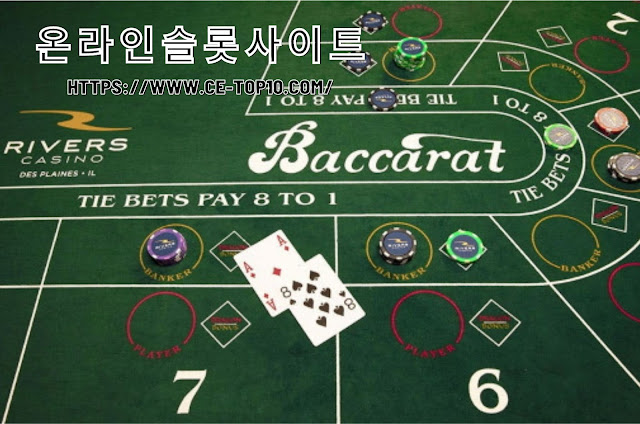Game Nature and Structure
Game Nature and Structure
A colossal combination of assessment recommends that the current betting progressions and scenes exploit people's conventional responses to repay conceivable outcomes and to people's scholarly inclinations, impression of peril, and affinity to compartmentalize mental records of their utilizations (e.g., Fischhoff et al., 1981; Wagenaar, 1988; Varey et al., 1990; Kahneman and Tversky, 1979; Tversky and Kahneman, 1992). A couple of makers fight that wagering tends to the obtaining of a hypothetical diversion extraordinary, for example, purchasing a pass to the films (Vogel, 1994). Regardless, considering the way that card sharks doubtlessly expect, or assumption for, something significant (cash), wagering 온라인슬롯사이트 might be less similar to review a film than to searching for an excess watch or vehicle. The value of the development draws to some degree from the social engaging quality of getting a phenomenal significant extraordinary and somewhat from the show or delight of the genuine activity. Danger may be significant for the delight. Wagering is influenced both by the genuine risks and grants of games and by how people imagine these risks and prizes.
Grant Contingencies
A huge part of the early exploratory composing related to wagering focused in on the significant pay in wagering and were gotten from examinations of learning through help and embellishment. Animal and human assessments showed that lead that is compensated unpredictably and randomly is presumably going to be reiterated in a comparable situation and will be significantly impenetrable to end (i.e., the direct stops exclusively after various unrewarded fundamentals). As needs be, factor and various honors in a wagering situation rouse a bigger number of wagers and higher bets than single, unsurprising awards do (Knapp, 1976). Since most business games incorporate sporadic honors of moving size, early learning research suggested that what it called constant wagering is an informed or formed direct; in any case, since few card sharks become energetic, broken and variable award alone can't explain issue or fanatical wagering.
A single opportunity is that additional pieces of wagering grant experiences are most likely going to bring about progressing or issue wagering. For instance, people are likely going to continue to wager when they are ahead and can wager "with the house's money" (Thaler and Johnson, 1990). As referred to in Chapter 2, it has in like manner been shown that nearby victories (e.g., the betting machine shows two apples and one pear) are particularly moving (Skinner, 1953) (see furthermore Kahneman and Tversky, 1979, for scholarly explanations of this effect). For specific exceptions (e.g., Ladouceur et al., 1995), this assessment has been driven in theoretical wagering conditions or involved unassuming amounts of money (e.g., Wagenaar, 1988). Several examinations report that hypochondriac theorists say they experienced a mother lode or series of wins all along (e.g., Moran, 1970), which is dependable with the lab research, but these examinations need check data. Perhaps every card shark reviews their most memorable enormous achievement poker.
Scholarly Distortions
Investigation on the scholarly cycles drew in with judgment and choice has been useful in helping with explaining betting choices and tendencies and, similarly, such advances that could uphold consistent or absurd wagering (Wagenaar, 1988). For example, a couple of express learned bendings have been noted as expected allies of psychotic and issue wagering, including: (1) the confusion of the thoughts of plausibility and inconsistency, (2) attitudinal and conviction lethargy, and (3) unseemly resetting of mental records. Each of these, discussed underneath, may add to inclinations in people's examination of chance cycles. As anybody would expect, various renowned and valuable wagering things incorporate games that advantage from uneven choices; countless these things are interesting to people even inside seeing outlandish prizes. For example, various card sharks accept that various wagers give them ''more ways to deal with win" regardless, when the different wagers are truly disadvantageous to them (Cohen and Chesnick, 1970). Also, various card sharks moreover acknowledge free, unpredictable events are by somehow related (Ladoucer and Dube, 1997).
People generally have a strong need to compel solicitation or and that implies on inconsistent cycles, and experts have investigated whether people can create sporadic progressions of matched events, (for instance, flipping a coin). Results show that they are routinely poor at both seeing and making such groupings (Wagenaar, 1988), may drive an exorbitant number of minor departure from a plan, or may contrast haphazardness and a balance of event frequencies (Wagenaar, 1972). These affinities add to the card shark's mystery, which coordinates that past losing events are more opposed to happen later on (Cook and Clotfelter, 1993). For example, after a couple of heads have appeared continuously in the flipping of a coin, it is challenging for some to go against the drive to acknowledge that the accompanying toss will not be heads to be sure, regardless of the way that the possibilities are at this point half heads versus half tails.
As well as endeavoring to perceive obvious models in erratic progressions, people moreover endeavor to control unpredictable outcomes. Langer (1975) implies with this effect as the duplicity of control. Theorists have a collection of techniques for applying their control in wagering conditions. For example, Henslin (1967) saw that a couple of examiners acknowledge they can influence the consequences of a fail horrendously roll by tossing it gently for a low number and hard when a major number is needed. Keren and Wagenaar (1985) found that blackjack players would habitually change to new tables after a sprinkle of incidents to change their karma. Other blackjack players would endeavor to intrude with the reworked solicitation of cards by drawing an extra card that they would consistently never draw. Thusly, they acknowledged they could break a sad predestined model and put themselves on a progression of wins.
The undertaking to compel demand on inconsistent groupings moreover relates to misconstruing the meaning of insignificant aptitude related with particular sorts of wagering. This was depicted by Gilovich et al. (1985) who ensure that the "hot hand," obvious in b-ball when a player's display supposedly is essentially shockingly great, may be near a long progression of randomly created events. That is, players now and again may perform shockingly great fundamentally due to probability, and to acknowledge regardless may a scholarly twist. Regardless, playing b-ball incorporates aptitude. Thusly, though a productive line of free throws 카지노사이트 may be the result of probability, it is similarly possible that a player's shooting on a particular day could have been extensively more competent than customary and due to little if any chance at all. As of late illustrated, a couple of kinds of wagering (e.g., cards and track betting) incorporate both chance and confined capacity. Scholarly curves can happen at whatever point card sharks over-or disparage the chance and the aptitude being referred to.
Various sorts of betting, for instance, betting machines, incorporate no capacity at all that aside from can in any case impact fantasies of control. Griffiths (1994) asked individuals who bet constantly and once in a blue moon, "Is there any mastery drew in with playing the gaming machine?" Those who bet conflictingly would overall agree, "generally probability," while unremitting card sharks routinely said, "comparable chance and capacity.'' When asked.GET MORE INFO
"How competent do you assume you are differentiated and the typical individual?" nonstop examiners thought they were oftentimes surprisingly good in capacity, however uncommon card sharks said they were either sub-standard or totally bumbling.
Players favor lotteries including complex games; they disregard to copy probabilities and acknowledge they will undoubtedly rule these matches than they really are (Cole and Hastie, 1978). These perceptions could explain a part of the attractions of openings, lotteries, and different game video machines. Theorists moreover favor vague possibilities (Griffith, 1994; Metzger, 1985), an inclination that makes them win shy of what they may some way or another in sports betting.




